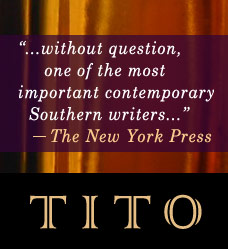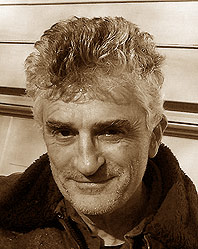Wednesday, November 11, 2015
Wednesday, October 7, 2015
THE SEA TURNED TO BEER
Imagine that the British leadership of those days had compacted
with Germany to put a quick end to Bolshevism, and then had gone on to
preempt multicultural America as the world's hegemon, developing instead a
society consecrated to unexampled cultural development centered upon the
qualities of the Caucasian peoples.
Aspirational societies require the best available demographics, an
approach directly antithetical to today's egalitarian hysterias . (One can
of course understand why second- and third-rate people, not to mention today's
major parties and papers, adore equality.)
It didn't have to be impossible - a future with operas houses
for each 10,000 citizens, a million-volume library for every urban square
mile, everyone his high quality telescope, every child his or her quantum
computer, the prevention of all diseases, the modeling of DNA to produce an
improved species, the advance of civilization into the galaxies, the promotion
of transcendent love, novels as good as modern cosmology, the
resurrection of the Greeks.
Far too utopian of course. Far, far, far. And
yet... Imagine just for the fun of it that we had invested as deeply into
the above-mentioned as we flush away on stocks and bonds, elective wars,
advertising, overkill housing, compassion, parliamentary
democracy, fanatical athletics and degrading entertainments.
But that's not of course what the masses want,
that prefer more (and less expensive) beer, TV idiocy, rugby
victories, a 15-hour work week, larger breasts and longer dicks.
RACISM
Racism is a wonderful institution that
should be rejuvenated and inculcated in schools. It is the last barrier to
global homogenization, and represents the default position of 99% of humanity
over 99% of historical time.
A natural and
indeed necessary sentiment, racism is just one method for people to evaluate
others in accord with their genetic value. Without racism, the world today
would be dominated by Neanderthals, or by the class of people who mostly inhabit
sub-Saharan Africa. Civilization requires the leadership of society's best
people; those areas governed by less advanced demographics fall quickly into
barbarism, as we see in so many places. In normal times, racism is so
universally experienced that historians hardly bother to call attention to it.
It is only in diseased and perverted eras, like our own, that elites rail
against this ineradicable and precious human attribute.
Hate, too, is a
necessary and valuable component of life, and anyone devoid of hate - (I've
never known such a person) - isn't living a complete life.
Racism and hatred are not illegal, no
more so than vegetarianism or finger painting. A healthy society will never try
to sequester such normal emotions, an effort forever destined to failure. I
myself have a full supply of hatred and loathing and racism, which I take out
every night and polish to a high sheen.
FUTURE GLORY
Within this
century, the population of Africa, economically the world’s poorest region, is
expected to surpass two billion. Other non-European societies are
likewise projected to experience large or even massive population
growth. The wealthiest and most attractive areas, primarily Europe
and America, are expected to see modest population growth and in some cases diminution.
Some western
countries are witnessing a reduction in the size of the native
population. By the end of the century, these more successful peoples
will represent only a trace element in the global population. At the
same time, their societies will be the target of hundreds of millions, possibly
billions of aspiring immigrants from outside the western realm.
For as long as
western countries remain wealthier and more comfortable than most,
they will continue to draw great numbers of immigrants, actual and potential,
from places where conflict, overpopulation, ecological failure and social
deterioration inspire continuing immigration. By century’s end, hundreds
of millions will wish to enter western countries. Owing to their numbers
and western humanitarianism, it will not be possible to halt the flood.
Eighty years from
now the nations deemed by immigrants as most desirable will have been submerged
in tides of less gifted, or anyway less successful peoples, a consequence of
the current belief in ruling western elites, exemplified by the editors of this
journal, that economics is the only important social value, that people are
fungible, and that all are equal.
If the liberal
belief in the equal cultural potential of all people is correct, then
civilization at a high level may continue. If not,
not. My own expectation is for a new Dark Age, more awful than the
last one, and a world in which civilization may never again achieve the quality
of, for example, that of classical civilization, or of Europe and America up
until the triumph of egalitarian thinking.
Thursday, July 3, 2014
A New Review of REUBEN
http://www.theoccidentalobserver.net/2014/07/review-of-reuben-by-tito-perdue/
Review of ‘Reuben’ by Tito Perdue
A. W. MacCrinnan

Reuben, Tito Perdue’s eighth published novel, is by far the 75-year-old author’s most subversive, incendiary, and defiantly reactionary work yet. It is bound to offend. It is sure to provoke. It is an apt and needful epic for our times and for our kind.
The story begins in present-day rural north-central Alabama. Reuben-a young, “uplander” bumpkin with a poorly-forged prosthetic metal foot-stumbles upon the humble estate of the excessively eccentric Leland (Lee) Pefley and his kind-hearted entomologist wife, Judy Pefley (a recurring and prominent personage in Perdue’s oeuvre). Lee is bitter and world-weary, curmudgeonly, and a bit transgressive. Situated atop a high ridge, he spends many an hour at “the Edge,” peering through his telescope down at the city of Birmingham, cursing the hideousness of the city itself and the ignorance and vulgarity of its inhabitants.
Lee Pefley, however, is also a brilliant visionary with a boundless love of knowledge and an inordinately profound understanding of the nature of beauty.
Lee, ab initio, wants nothing to do with an oafish, six foot six “hazel-eyed churl” who walked into his life, but Judy’s gentle cajolery persuades Lee to put the churl up in the barn, put him to work doing farm chores, and introduce the boy to the joys of book-learning.
Under the Spartan tutelage of his thorny mentor, Reuben — who knew nothing of classical education when he first arrived — is soon immersed in a multiverse of languages and literature, hard science, high art, and philosophy. Lee discovers that “the vagrant” possesses both an inborn proclivity for science, and an innate aesthetic sensibility.
Leland also imparts to his acolyte his own thoroughly elitist, anti-cultural Marxist, anti-feminist, anti-post-modern philosophy. Lee, an inveterate philhellenist, aches for an age such as that of ancient Athens, though he would settle for the antebellum South. Or, at the very least, the United States circa 1950.
When winter comes, Judy is terrified. Feeding “the vagabond” all this time (his appetite for food is like his appetite for knowledge) has depleted the couple of much of their savings. In desperation, Judy takes an office job in town, working for “fourth-rate philistines.” Horrified, Lee sends “the varlet” to Atlanta on a clandestine “little mission,” the specifics of which are never revealed. After a few days, however, “the varmint” returns with a valise filled with several thousand dollars in cash, a healthy cut of which he keeps for himself. The balance is enough to end Judy’s drudgery.
Reuben adopts the Pefley surname as well as Lee’s uncompromising worldview. And, after months of intensely concentrated learning, and with sufficient enough cash in his vest pocket, the lad leaves the farm determined to heed Lee’s words: “Take history in your teeth and turn the world upside down.”
Thus begins Reuben’s down-going (into Birmingham). It is his first visit to a city and his first encounter with Negroes. The foul-mouthed, gold-chain wearing “youths,” one of whom had dyed his hair strawberry red, try to rob Rubin.
He reached for his gun, Reuben, but then in a sudden excess of delight took the head of the strawberry boy in both hands, brought it low, and smashed his left (not his right) knee into the boy’s pre-historical face. Silence followed.
Through a series of mishaps and misadventures, he is twice thrust into the city jail for various misdemeanors, and left impecunious from sundry questionable and excessive jail fines. Obliged, then, to seek gainful employment, Reuben takes a job as a warehouse worker at a paint manufacturer, but is soon promoted to a receipt-managing office job, and thence to the accounting department when his supervisors learn the young man is “a literate person and able to function in three languages.”
Reuben, at the age of twenty-five, rapidly rises in the ranks of any organization or institution with which he affiliates himself.
[He] had enrolled part-time in a branch campus of the state university. … His knowledge of the humanities was already extremely good, wherefore he was given a battery of tests and granted more than half the undergraduate credits needed for a degree. He studied chemistry (his favorite branch of knowledge) and by July he had been partnered with a (Chinese) professor whom he disliked not quite enough to throw away the advantages of the connection.
The university offers Reuben a relatively generous grant which allows him to quit his job and spend more time at the library. Then, the California Institute of Technology “recruits” Reuben, and he receives his Ph.D. at Caltech that summer.
Then one day in the year 2036, an overly animated drinking acquaintance slips Reuben a note on a napkin indicating a meeting where he, Reuben, “could expect to be enthusiastically received.”
Reuben attends the conclave, a covert gathering of rich reactionaries who refer to themselves as The Station: a kind of counter-Illuminati in infancy. The Station has plans. Grand plans.Grand global plans. And so does Reuben. He becomes a member, and is soon counted among the top brass.
Reuben, by now, is a millionaire. At thirty-years of age he owns five lucrative patents; earns a six-figure salary that, happily, promises to keep increasing; and he gets back increasingly fatter and fatter returns from multiple opportunistic investments made based on his inside knowledge of advances in technology.
As his wealth, power, and influence all steadily accrue, so does his worldly wisdom, and with it his ever-ripening wrath.
Then, one night, on his walk back from a performance of Parsifal, he buys a newspaper.
His attention fell upon an article that was to prove the greatest interest to him, which is to say the story of a nine-year-old White girl (her photo was appended) who’d been raped and killed by a Salvadoran immigrant. Twice he read the article through to the end, confirming that the killer had been given a suspended sentence by grace of a Jewish lawyer playing to a jury of northeastern women.His mind … kept reverting back to the newspaper, the child, but especially the lawyer. He belonged, that man, to a highly effective crowd that already had manipulated the White majority down to nearly nothing, while expecting, one must suppose, to be better respected by Latin Americans.
Reuben researches the lawyer, then visits his office, pretending to be a potential client with a potentially juicy lawsuit: his little boy had almost drowned in his extremely negligent and extremely wealthy neighbor’s non-gated swimming pool. Provided they go forthwith to photograph the area before the neighbor makes improvements, it should be an open and shut case. With this ruse, he lures the lawyer.
Dashing to Reuben’s well-kept car, they drove top speed down Martin Luther King (Senior) Avenue before turning off onto MLK Jr., a lightly traveled thoroughfare that led out of town. … There was nothing in that car except for the two men, the two men and a shovel, a shovel and a coat hanger, a coat hanger and a pair of pliers, pliers and a mint-new blowtorch weighing no more than six or seven pounds.
At The Station’s twenty-seventh convocation, Reuben is enthused by the keynote speaker’s vision, and the group’s ultimate aim: “a Confederacy of the Northern Hemisphere,” a long-term project to incorporate ninety-one percent of the world’s White people (and perhaps a few Japanese) into a single polity.”
Their next major strategy — intended to eventually achieve the White polity — was to take over the Chicago-based Aspinosa Television Network. After all, “The masses will believe anything if only it be repeated often enough by good-looking people on television.”
It required Reuben just more than a month to remove the egalitarian propaganda that infected the existing programming and replace it, on a phased basis, with crime dramas in which the good people were not always strong women of a feminist bent, or always black…
Then, one day, Reuben receives an unexpected phone call. The Station has unanimously selected him as chairman. He immediately goes to work. He first develops a huge pipeline — hundreds of miles long — called “The Gyre,” which runs down the southern border into Jalisco, Mexico and other southern parts. The pipeline “had enough circumference to admit four ordinary-grade human beings marching side by side”. Through it he forces a great part of the country’s swarthy immigrants (legal and illegal). Reuben’s intention, “by means of threats and inducements” is to export “all those who entered the country since Johnson’s immigration bill of 1965.”
Reuben next turned his attention to the some sixty million African-American Negroes, a lapsed population sustained on the naiveté of the authentic population. Some lived in cities, some did not. Some went willingly into the pipeline. Some did not. Meantime, his agents had unearthed large numbers of feminists, New York lawyers, several hundred necrophiliacs, twenty-eight cannibals, and one individual whose proclivities lay outside the reach of a standard dictionary.
Reuben then acquires Canada, unites with Eastern Europe, and engages in a series of tempestuous negotiations with the Russians in an effort to have them join the Confederation. He also demands and receives “a full retrospective refund from Tel Aviv,” to pay back all the tens of billions of dollars America had given to Israel over the decades (though not without surviving several assassination attempts).
Thus begins Reuben’s chairmanship of The Station.
So, in all, does Rueben manage to turn the world around? And what do The Fates have in store for him in the end?
Reuben reminds one of Ayn Rand’s John Galt: super-talented, intelligent, and wealthy, with a strong vision of what the future should be like and the will and means to carry it out. Unlike Rand’s, his vision of the future is strongly racially based. And although Mr. Perdue spares us the gory details, it is quite clear that the revolution he has in mind will not occur without breaking some eggs — quite a few eggs. (See Greg Johnson’s “The Cleanse” for a proposal for “a well-planned, orderly, and humane process of ethnic cleansing.”)
One of The Churl’s favorite historical personages is Empedocles, an ancient Greek pre-Socratic thinker: a real man, but a man shrouded in lore. According to legend, the sage plunged himself into the active volcano of Mount Etna, in Sicily, in order to prove himself immortal.
Empedocles, like Rueben, was both a man of science and a philosopher. And, let us just say that, like that eccentric Grecian of old, Rueben’s life and his great and terrible deeds, and his surmised death, will henceforth forever be the stuff of myth.








